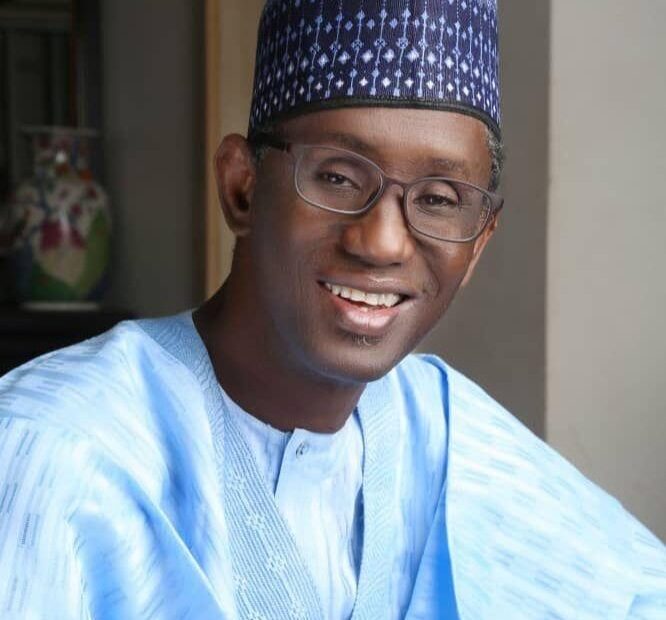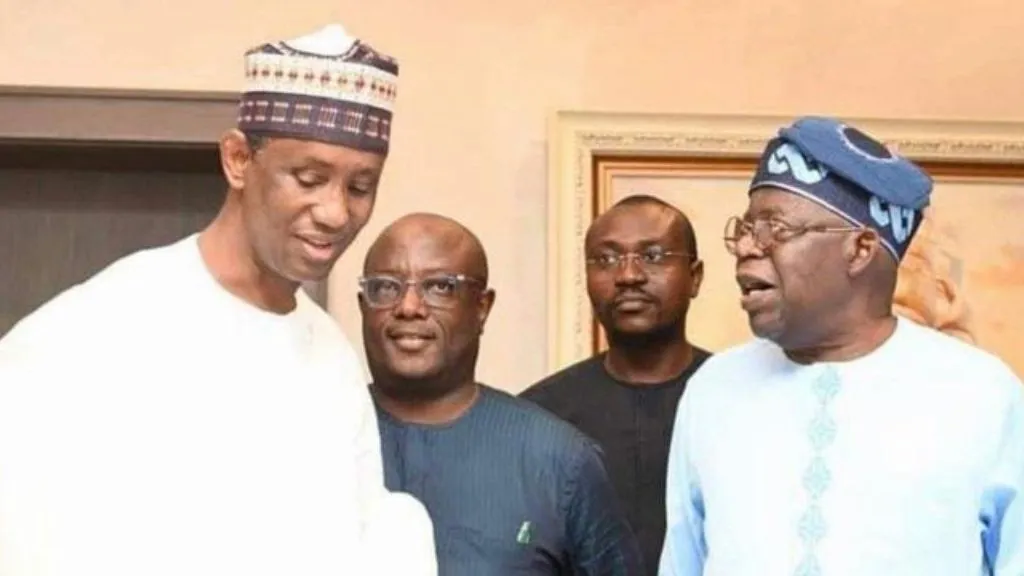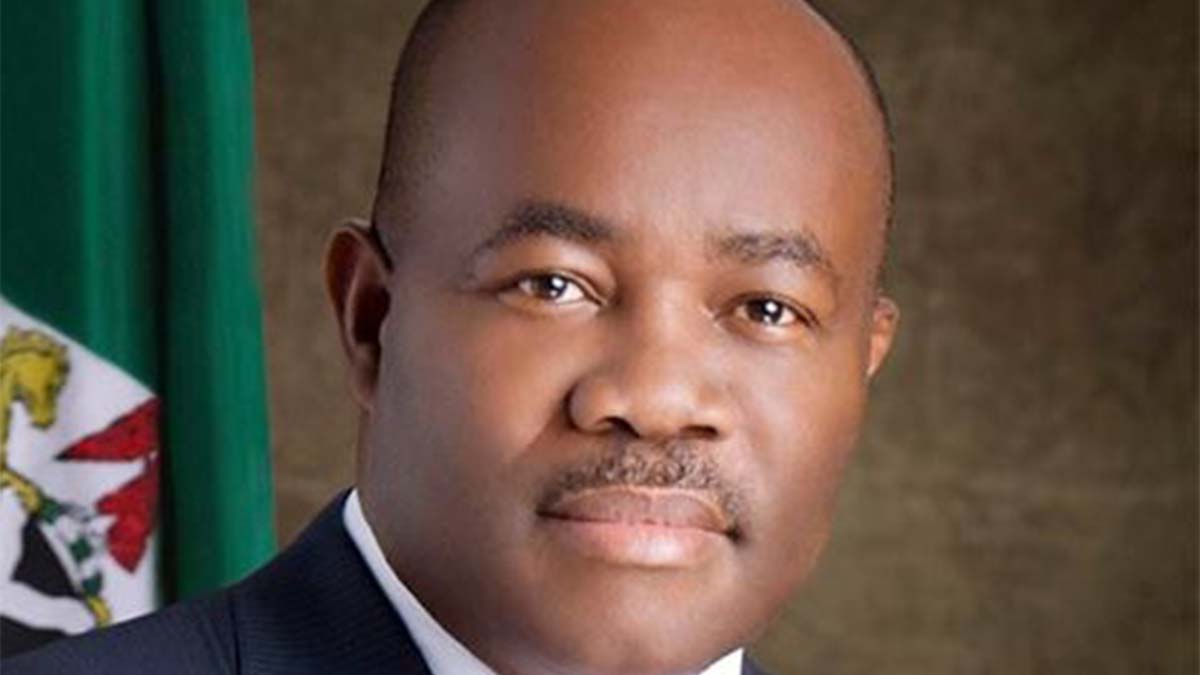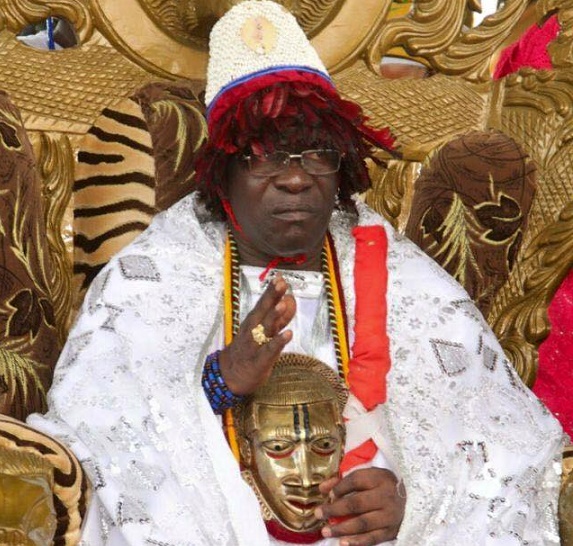7-Point Agenda for Nuhu Ribadu as NSA

Key points:
-
The success of the Tinubu administration will depend largely on how insecurity is tackled
-
Nuhu Ribadu is fearless and disciplined, but he needs more than these on this new assignment
-
Nigerians are expecting a unique approach to the fight against terrorists and bandits
-
There must be quick response to intelligence information, if attacks must be forestalled
-
The government can no longer ignore hate crimes and hate speech
By Theophilus Abbah
Mr Nuhu Ribadu, a retired Assistant Inspector-General of Police, pioneer Executive Chairman of the Economic and Financial Crimes Commission (EFCC) and lawyer, who was recently appointed as the National Security Adviser to President Bola Ahmed Tinubu, is famous for being fearless. For those interested in clearly understanding how this trait manifests in Ribadu’s life, the book to read is A Paradise for Maggots: The Story of a Nigerian Anti-Graft Czar, by Wale Adebanwi. The book is a chronicle of Ribadu’s life of fearlessness, including how he challenged an armed robber in an encounter in Zaria to shoot him, instead of finding an escape route from the death threat. In the 463-page book, Ribadu’s running battles against Advance Fee Fraud kingpins, corrupt governors, top police officers, including the late Inspector-General of Police Tafa Balogun, other government functionaries, even the legislature, are contained in the book. Therefore, in this new assignment, Ribadu is not in the business of proving that he has capacity to hold such a sensitive public office; they form the foundation for the fresh challenge of Ribadu’s public service to the Nigerian State.
No doubt, the NSA job is a tough one, but more significantly, the person who holds that office and the way he discharges his responsibilities will determine the success and failure of the Tinubu government. In the last decade, Nigerian presidents have been elected and voted out on the basis of how they performed in tackling terrorists, and later, bandits who have made life miserable for millions of Nigerians. It is believed that Goodluck Jonathan lost his bid for re-election in 2015, not necessarily because of the personality of Muhammadu Buhari, but due to his apparent failure to decimate Boko Haram fighters who had infested many local governments in the North-East.
On his part, Muhammadu Buhari was elected in 2015, as a retired Major General and tough military president to tackle terrorists in the North-East. But in his era, banditry as we know it, which brewed in Zamfara State, spread to all parts of the country. It should have cost him re-election in 2019, if he had not taken advantage of the power of incumbency to muzzle his way back to Aso Rock Villa. And as he departed on May 29, 2023, in spite of his self-praise that he was leaving the country much better than he met it in 2015, Nigerians were disappointed that he failed to effectively deal with insecurity in his eight years as President and Commander-in-Chief of Nigeria’s Armed Forces.
The ball is now in Tinubu’s court. Unlike Buhari, Tinubu is not a former military general. He would depend on military tacticians in his inner circle, and, of course, his NSA to evolve the strategies and devices for defeating terrorists who are now cancerous in the body polity of Nigeria. For Ribadu to deliver on this fresh assignment, he must engage in a new quick learning and come up with uncommon strategies for tackling the menace. Below are some ideas.
Ribadu is not in the business of proving that he has capacity to hold such a sensitive public office
1. Baseline study of the state of insecurity in Nigeria today: A baseline study is an initial assessment usually conducted to gather data on the current situation, attitudes and behaviours of the target community. Ribadu needs to conduct this study to clearly understand the variables at play in the state of insecurity in Nigeria today. No doubt, insecurity has continued to evolve over time and space. The situation in 2009 when Boko Haram unleashed terror in Borno or North-East is general is not the same with the current situation in that part of the country. Though the terrorists are believed to have their hideouts in Sambisa Forest, a lot of changes have taken place in Sambisa Forest and towards the Lake Chad Basin and Nigeria’s borders with Cameroon, Chad, Niger Republic and other countries where they usually snake into when under pressure from the Nigerian military. In the same manner, the banditry in Zamfara may not be the same as what obtains in neighbouring Katsina State, while the herdsmen attacks in Benue State may not be the same as what happens in Ebonyi State. It is imperative for the outgoing National Security Adviser to produce tonnes of pages of a handover document to Ribadu. Apart from devouring the contents of that document, Ribadu must conduct an immediate assessment of the situation to ensure steps taken to deal with insecurity are not based on hearsay and sycophancy.

President Tinubu and Nuhu Ribadu. Photocredit: Online
2.Quick evaluation and action on intelligence information: Overcoming bandits and terrorists relies a lot on intelligence information gathered from diverse sources, especially insiders in terrorist camps, target victims and of course open sources. Though Tinubu has charged security agencies to intensify intelligence gathering and collaboration among the police, military and paramilitary agencies, the reality is that Nigeria does not suffer from the shortage of intelligence. Rather, government and security agencies have failed the people for being reluctant to act on intelligence information, frustrating those who provided the information and creating the free space for terrorists to carry out their enterprise. For instance, In Zamfara, Katsina, and Kaduna State, there is enough intelligence about the activities of bandits, even from their demands for levy from farmers and residents. In many cases, hunters encountered bandits in the forest days before communities come under attack. Some bandits have the courage to write letters of threats to community leaders, but when the intelligence is passed to security agencies in those areas, little or no steps would be taken to forestall such attacks. Most times, the excuse had been, there was no instructions from the higher authorities for action to be taken against such criminals. It is not really clear why the procedure for action against criminals is so cumbersome, to the extent that it leaves space for mass killing of the Nigerian people. The NSA must tackle this issue and come up with a strategy that would allow quick responses to intelligence information. It is a fact that some intelligence information may be misleading and could endanger the lives of security operatives. But the solution to that is for our intelligence agencies to cultivate multiple sources in and outside the criminal groups for verifying the authenticity of security threats. In many cases, Save Our Souls (SOS) messages from Nigerians to security agencies were genuine
It is a fact that some intelligence information may be misleading and could endanger the lives of security operatives
3. Policing rural areas: As it is the case with terrorists from Algeria to Afghanistan to Somalia, they begin their campaign from rural areas, first by intimidating communities, sacking and confining them to refugee camps, and progressively make their way to urban centres. Therefore, governments that have tackled insecurity put in place practical steps to safeguard rural communities. For over a decade now the country has made loud noises about community policing or empowering vigilante groups, or canvassed for state police. If implemented decisively, any of these is enough to tackle bandits and terrorists. Conversely, terrorists in Nigeria consider themselves invincible simply because the response time to their attacks is too long. They invade communities at , say 3pm, operate for four hours, with little or no resistance from security agencies or the people. On their wake the leave trails of bloodshed, deaths and destruction of properties. Sadly, investigations into such mayhem are never conducted or if conducted, the outcomes are never made public. Arrests are rarely made; no one is seen to have been punished. Of course, under such environment, they will summon the courage to arry out more attacks. In the immediate, it is very necessary to train Civilian Joint Task Forces in every rural community to enable them challenge, no matter how imperfectly, those who overrun their communities. It is not out of place to train secondary school students martial arts and how to defend themselves and their communities in case of emergency. We have noticed that in Borno State, where CJTF is relatively effective, youths are in the forefront of defending cities and villages, instead of running sheepishly from terrorists. If government is unwilling to train CJTF, then it must engage in the massive recruitment of mobile policemen, equip and deploy them in every district. It is now clear that we cannot wish away terrorists and bandits; they must be challenged regularly and effectively.
4. Who is benefiting from insecurity?: On very few occasions Nigerians have read stories about traditional rulers who are in bed with bandits and terrorists; politicians who defend terrorists and bandits to prevent decisive actions against them; security operatives who are agents of terrorists and bandits; senior security officers who make a fortune from the perennial killings and destruction of properties; so-called business men who infiltrate the society on behalf of the criminals; and even religious leaders who defend bandits and terrorists through sophistry, unfounded arguments, and senseless emphasis about failure of government to care for such groups. It will be difficult to end insecurity in Nigeria unless the benefits to entrepreneurs in violence are cut off. Insecurity must not be seen as a business venture, because it contributes to destruction of lives rather than enhance livelihood. As NSA, Ribadu must replicate what he did at the EFCC, by investigating, arresting and prosecuting Nigerians who are crisis enterpreneurs and have made a fortune from the misfortune of the Nigerian people. Our security operatives, especially the Department of State Security (DSS) must be put to task on identifying such persons and groups of persons for action. On this issue, there must be no sacred cows.
5. Resettlement of Nigerians sacked by bandits: It is sad to say that the outgoing administration of President Muhammadu Buhari turned deaf ears to the plight of Nigerians who were displaced from their land by bandits. Many farmers in Benue, Kaduna, Zamfara, Katsina, Sokoto, Niger, etc were uprooted from their ancestral homes and farms, dumped in unorganized Internally Displaced Persons (IDPs) camps and abandoned by state and federal governments, and even international Non-Governmental Organizations (NGOs). Instead, the government spent billions of Naira on rehabilitating and resettling so-called repentant Boko Haram members, who are not made to face the law for their criminal activities. While a lot of resources are poured into the North-East to help victims of terror activities, victims of banditry in the North-West and North-Central are left to their fate. Worse still, bandits have renamed hundreds of villages, taken over houses and farmlands. In this modern age, in a society where there are security agencies and recognized justice system, this cannot be acceptable. In the Dark Ages when bandits made wealth and took over kingdoms through violence, people acquiesced to this form of intimidation and suppression. But not in the 21st Century! Of course, there will continue to be communal violence in such areas until justice is done. The National Security Adviser must take steps to ensure redress for the people to be returned to their ancestral lands.
6. Dealing with hate crimes and speech: Hate crimes are those violent attacks motivated by bias against race, religion, colour, national origin, sexual orientation, and such discrimination. Some of the agitations in the country today are as a result of hate crimes. However, successive governments have waved them aside, as if they are of no consequence. For instance, in Nigeria persons can be stoned or clobbered to death for ‘blasphemy’ without even the Sharia Court declaring that such action is actually blasphemous. Both state and federal governments turn blind eyes to such injustice, sending signal to those who belong to the community of victims to accept that mob actions of that type received the approval of the authorities. Then, there is the second aspect of hate crimes which is found in speeches. Hate speech is not just on social media; it is traced to many religious groups, and amplified on social media. Nigerians are aware that the founding leaders of Boko Haram preached sermons that were laced with hatred; but today, similar sermons are preached all over Nigeria, even in Nigerian higher institutions of learning. Security operatives are aware of it, but they have failed to take any steps to caution purveyors of hate speech. The NSA must use all resources at his disposal to monitor hate speech in Nigeria and ensure that those found wanting are called to question.
In Nigeria persons can be stoned or clobbered to death for ‘blasphemy’ without even the Sharia Court declaring that such action is actually blasphemous
7. Debunking the rhetoric of bandits, kidnappers and terrorists: In the current dispensation, the rhetoric of criminals, full of false narratives, have circulated unchallenged in Nigeria. They have been amplified by even prominent individuals who clearly know they mislead the nation. For instance, kidnappers and bandits claim that the government abandoned them, so they had to engage in criminality to survive. This sense of victim-hood was re-echoed even in government to justify inaction against bandits and kidnappers. Terrorists in the North-East used the same approach, by claiming that by killing the people, they were in the business of cleansing the land of corrupt politicians and secular administration. There are other falsehoods that have gained ground – that the British colonialists handed over Nigeria to a section of the country who must exercise aristocratic powers over others. There are all sorts of religious rhetoric in the air, creating division and disaffection among the people. It is the responsibility of security agencies to respond to these rhetoric because they justify criminal activities. Worse still, these criminal use such rhetoric to recruit youths into their fold and elongate the lifespan of their groups. It will not be out of place for the NSA’s office to harvest these rhetoric and use the traditional and social media to debunk them on a regular basis. Media owners must commit air time and space in digital, broadcast and print platforms for refuting many of such messages. In this age of disinformation and misinformation, institutions have come up with active measures to verify and debunk wrong information from various sources. The Nigerian government must not fail to decisively deal with the spread of false doctrines that aggravate insecurity.
The position of the NSA is very critical to security in Nigeria and the credibility of the Tinubu administration. Section 4(2) of the Act states that: “The Coordinator on National Security shall be a Principal Staff Officer in the Office of the President, Commander-in-Chief of the Armed Forces.” Section 4(3) defined the role of the Coordinator on National Security to include: Advising the President, on matters concerning intelligence activities of the (created) agencies; making recommendations in relation to the activities of the agencies to the president as contingencies may warrant; correlating and evaluating intelligence reports relating to national security and providing the appropriate dissemination of such intelligence within Government using existing facilities as the President may direct; determining the number and level of staff to be employed by each agency established by the Act; and doing such other things in connection with the forgoing provisions of this section as the President may determine.” This is definitely a very important position, but its effectiveness depends on the person who occupies that position.
Dr Abbah is a Fellow of the Chartered Institute of Forensic Investigation and Fraud Examiners of Nigeria.
The Insight Report
Nigeria Coverage



